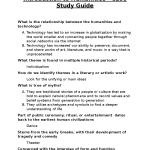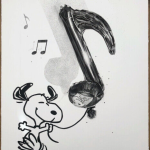Katie Kitamura, an acclaimed author and a recent 2025 Guggenheim Fellow, is making waves in the literary world with her latest work, “Audition.” Following the success of her previous novels, such as the praised “Intimacies,” Kitamura adeptly explores themes of performance, identity, and the subtle horror lurking in everyday life. In a revealing interview, she discusses the uncanny aspects that inspire her writing, drawing connections between horror literature and our everyday experiences. With a keen eye for detail and a unique narrative style, Katie Kitamura invites readers to confront the unsettling truths of human relationships and the secrets of midlife. Her upcoming discussion at Harvard promises to shed light on the creative processes and the complexities of modern storytelling, making it an event not to be missed for fans of creative writing and literature enthusiasts alike.
The literary landscape is always evolving, and Katie Kitamura stands at the forefront of contemporary fiction. In her latest novel “Audition,” she dives into the intricate dynamics of family life, privacy, and identity through the lens of a character who embodies the struggles of midlife. This exploration of themes resonates strongly within the realms of horror literature, as Kitamura illustrates the unspoken fears and uncertainties that can arise in familiar settings. Her conversation at Harvard, alongside esteemed writer Claire Messud, promises to delve into the depths of creative writing and the artistic choices that shape our understanding of narrative. As a voice of authority in literature, Kitamura’s insights into her writing journey and the craft itself will captivate both aspiring writers and seasoned readers.
The Horrific Elements in Katie Kitamura’s ‘Audition’
In her latest novel “Audition,” Katie Kitamura dives deep into psychological horror, intertwining themes of motherhood and the existential dread of middle age. The narrative is designed to unsettle, tapping into the fear of the unknown through its protagonist’s experience. Kitamura deftly crafts a story where the familiar turns bizarre; the main character wrestles with perceptions of herself and her family, a metaphor for the disconcerting realities we often ignore. Readers will find echoes of horror literature in her portrayal of domestic life, amplifying the eeriness that can permeate even the coziest spaces of a New York City apartment.
Kitamura’s use of horror elements reflects her understanding of the genre’s power to explore human psychology. By drawing on her influences, including iconic works like “Rosemary’s Baby” and Shirley Jackson’s “The Haunting of Hill House,” she constructs a narrative rich with tense moments and uncanny reflections. The underlying horror is not only in the supernatural; it also resides in the mundane angst of daily interactions and the fear that those we know best might be hiding their true selves. Through this lens, Kitamura invites readers to confront their perceptions, urging them to question how well we truly know those around us.
Katie Kitamura: Exploring Performance in Literature
Performance is a captivating theme in Katie Kitamura’s work, particularly in “Audition.” The protagonist, an actor, encapsulates the fluidity of identity as she navigates her roles both on and off the stage. Kitamura argues that our understanding of those roles is often superficial; the layers of performance can obscure our true selves. This idea resonates deeply within the context of personal and artistic relationships, raising provocative questions about authenticity and the masks we wear in daily life. Kitamura challenges her readers to consider how much of their existence is theater and how often they permit themselves to drop the act.
Moreover, Kitamura’s reflections on performance extend to her role as a creative writing instructor. She emphasizes the importance of vulnerability in storytelling, a skill critical in teaching students about creating complex, relatable characters. By fostering discussions on the art of performance — both in writing and in real life — Kitamura encourages her students to delve into their own experiences, engage with their creativity, and explore the performance inherent in every narrative. She believes that understanding the interplay of roles can elevate their writing and provide a deeper connection to readers.
Katie Kitamura on the Impact of the Pandemic on Literature
The COVID-19 pandemic has fundamentally altered perspectives on life and literature. In her interview, Katie Kitamura reflects on how her experiences during this time seeped into her writing, even if unintentionally. Her novel “Audition” captures the claustrophobic dynamics of family life in a confined space, paralleling the anxieties many faced during social isolation. Although Kitamura denies a direct representation of pandemic elements like masks or vaccines in her work, the emotional landscape she paints mirrors these tumultuous times. The sense of confinement and psychological strain resonates with audiences who lived through a shared experience.
Kitamura’s acknowledgment of the pandemic’s influence speaks to the deeper role of fiction in articulating societal emotions. Writers like her are tasked with reflecting on our realities while simultaneously offering escape. By addressing feelings of dread, uncertainty, and a longing for connection, Kitamura thus transforms her narrative into a commentary on the human experience during crisis. Her approach underscores the idea that literature can serve as both a mirror and a refuge, showcasing its relevance amidst the chaos of the world.
Creative Writing in the Age of AI: A Perspective from Katie Kitamura
In today’s rapidly evolving landscape, where AI technologies are emerging as significant players in content creation, Katie Kitamura’s insights on creative writing resonate even more. She advocates for the importance of human storytelling, emphasizing that the intricacies and emotional depths of fiction cannot be replicated by machines. Kitamura believes that as writers, we have a unique ability to engage with reality and envision alternate narratives. This skill is essential not only for storytelling but also as a powerful tool for social change and understanding, particularly in these times of heightened technological dependence.
Moreover, Kitamura’s own journey — being a 2025 Guggenheim Fellow — highlights the transformative power of dedicated literary pursuits. In a moment when the world often feels disconnected, she firmly believes that literature can cultivate deep connections among individuals. Writing fiction becomes an act of resistance against isolation, fostering a communal spirit that transcends boundaries. By teaching creative writing at NYU, she plays a crucial role in nurturing the next generation of voices who will navigate these challenges and continue to contribute rich, meaningful perspectives to the literary cannon.
The Role of Privacy in Relationships According to Katie Kitamura
One of the most compelling themes present in Katie Kitamura’s work is the notion of privacy within interpersonal relationships. As discussed in her book “Audition,” the concept of complete transparency between loved ones is not only unrealistic but also potentially harmful. Kitamura posits that maintaining some level of privacy is essential for healthy relationships, allowing individuals to retain elements of their identity that don’t need to be shared. This belief challenges the societal pressure towards total openness and underscores the importance of boundaries in fostering intimacy.
The question of how well we truly know others becomes a poignant exploration in her narratives. Kitamura’s characters often grapple with their internal landscapes, revealing their hidden fears and desires, while the dynamics within familial settings reflect the constant negotiation of personal space and shared experience. This exploration stimulates crucial conversations about the limits of intimacy and trust, inviting readers to reconsider how understanding and familiarity exist in their relationships.
Katie Kitamura’s Influences from Horror Literature
Katie Kitamura draws remarkable influence from the traditions of horror literature, integrating its elements throughout her storytelling. In shaping characters who confront their fears and uncertainties, she channels the essence of classic horror narratives. By weaving references to iconic authors and distinct styles into her writing, Kitamura creates an engaging tapestry that serves not only as entertainment but as a deeper commentary on the human condition. Her fascination with the uncanny reflects a broader cultural resonance, prompting readers to explore their own fears through the lens of fiction.
Moreover, Kitamura’s strategic approach to horror enhances the complexity of her narratives, making them thought-provoking as well as terrifying. In “Audition,” she utilizes horror not only as a tool for suspense but as a framework for examining themes such as motherhood and existential dread. This evolution signifies a shift in how horror can be understood, allowing it to transcend mere thrill and encourage introspection. Kitamura’s work affirms that horror literature possesses the power to confront uncomfortable truths and resonate with audiences on personal levels.
The Challenge of Creative Expression in Difficult Times
The act of writing can be a profound challenge, particularly during tumultuous times mirrored by societal unrest and global crises. Katie Kitamura emphasizes the significance of creative expression, asserting that it can be both a reflection of and a response to the world around us. Art requires vulnerability, and as writers navigate their emotions and fears, their stories become a conduit through which readers can connect with collective experiences. Her insistence on the importance of literature as a tool for empathy and understanding is vital in an age where division is prevalent.
Through creative writing, Kitamura encourages an exploration of perspectives, fostering dialogue among different voices. As she advocates for the necessity of art during crises, she reminds us that fiction can serve not just as escapism but as a catalyst for change. Her teachings inspire budding writers to harness their anxieties and frustrations creatively, resulting in impactful narratives that resonate with audiences and stimulate conversations about shared realities. In an unpredictable world, creative expression emerges as an essential form of resistance and connection.
The Significance of Language and Narrative in Today’s World
Language shapes our perceptions and actions, a notion that Katie Kitamura embraces in her literary endeavors. In times where misinformation and fragmented narratives dominate, the call for precise, deliberate language is more pressing than ever. Kitamura believes that literature holds immense power in articulating truth and challenging dominant discourses. Her approach highlights the importance of narrative construction, encouraging writers to reclaim and redefine the stories that shape our understanding of reality. As a 2025 Guggenheim Fellow, her commitment to the craft underscores a belief that literature must actively engage with contemporary issues.
In nurturing young writers, Kitamura emphasizes the critical role of narrative as a unifying force. In an age characterized by polarization, literature can bridge cultural divides and foster conversations that challenge stereotypes and misconceptions. By teaching the importance of storytelling, she empowers her students to weave their own narratives, elevating often unheard voices. This dialogic aspect of literature situates it as a vital platform for empathy and understanding, illustrating Kitamura’s conviction in the enduring relevance of creative writing.
Katie Kitamura’s Journey as an Acclaimed Novelist
Katie Kitamura’s evolution as a writer is marked by her bold exploration of complex themes and her increasing recognition in the literary community. With each of her novels, including the acclaimed “Intimacies,” Kitamura has carved out a distinctive voice that resonates with readers seeking depth and insight in their literary consumption. Her recent achievement as a 2025 Guggenheim Fellow further solidifies her status as an influential figure in contemporary fiction, distinguishing her ability to engage with challenging subject matter and produce transformative narratives.
Kitamura’s journey reflects the challenges and triumphs that many authors face, emphasizing that perseverance in the literary world is paramount. As she continues to hone her craft and shape her voice, she offers aspiring writers a roadmap through her experiences of navigating the literary landscape. Her commitment to exploring the nuances of human relationships and societal issues makes her not only a skilled writer but also a vital contributor to conversations around creativity and culture, inspiring future generations to follow in her footsteps.
Frequently Asked Questions
What themes does Katie Kitamura explore in her novel ‘Audition’?
In ‘Audition’, Katie Kitamura delves into themes of performance, privacy, and the psychological intricacies of relationships. Set against a backdrop that evokes horror literature, the novel portrays how familial connections can reveal unsettling truths, blurring the line between reality and perception.
How did Katie Kitamura’s background influence her approach to creative writing?
Katie Kitamura’s background as a writer and her experiences teaching creative writing at New York University inform her narrative style. Her works often reflect on societal challenges, including the impact of the pandemic, and emphasize the importance of language and storytelling in understanding and reshaping our realities.
Is Katie Kitamura considered a horror novelist due to her latest book ‘Audition’?
While Katie Kitamura has engaged with horror as a genre in ‘Audition’, she prefers to characterize her work as exploring the uncanny aspects of everyday life. By integrating horror literature elements, she examines how familiar relationships can become unsettling and complex.
What recent recognition has Katie Kitamura received for her literary work?
In 2025, Katie Kitamura was named a Guggenheim Fellow in fiction, which highlights her contributions to literature and recognizes her ability to address contemporary issues through storytelling.
How does Katie Kitamura incorporate the pandemic’s influence into her writing?
Though ‘Audition’ does not explicitly reference the pandemic, Katie Kitamura acknowledges that writing during that time shaped her narrative. The novel reflects themes of confinement and personal dynamics within a family, capturing the emotional landscape of those shared experiences.
What is the significance of performance in Katie Kitamura’s novels?
Performance is a central theme in Katie Kitamura’s work, particularly in ‘Audition’. She examines how individuals perform different roles in life and how these roles can mask deeper truths about identity and relationships, ultimately leading to moments of vulnerability and realization.
How does Katie Kitamura’s teaching of creative writing influence her novels?
Katie Kitamura’s teaching of creative writing allows her to engage with diverse perspectives and ideas, which she incorporates into her novels. Her experiences in the classroom inform her understanding of narrative structure and character development, enhancing the depth and richness of her storytelling.
How does Katie Kitamura view the role of fiction in contemporary society?
Katie Kitamura believes that fiction plays a vital role in contemporary society by offering a means to critique and envision alternate realities. She emphasizes that literature can challenge power structures and connect individuals, making storytelling a powerful tool for societal change.
| Key Points |
|---|
| Katie Kitamura is a contemporary novelist whose latest book, “Audition,” explores themes of performance, privacy, and the uncanny aspects of midlife. |
| Her writing often incorporates elements of different genres, including mystery and horror, drawing inspiration from works like “Rosemary’s Baby” and “The Haunting of Hill House.” |
| The novel reflects the pandemic experience metaphorically, though it does not directly address it, depicting characters in a confined space. |
| Kitamura emphasizes the importance of performance in understanding identity and relationships, suggesting that full transparency in relationships may be mythological. |
| She advocates for the significance of fiction, particularly in tumultuous times, arguing it serves as both a reflection of reality and a canvas for imagining alternate realities. |
| As an English major and educator, Kitamura underscores the profound connections formed through literature, viewing reading as a vital part of communal resistance. |
Summary
Katie Kitamura captivates audiences with her examination of the complexities of human relationships and identity through her novel, “Audition.” As seen in her thought-provoking interview, Kitamura dives deep into themes of performance and the hidden layers within personal connections, highlighting how literature can reflect wider societal issues. Her perspective on the necessity of fiction in today’s climate serves as a reminder of its enduring power to connect and challenge the status quo.










